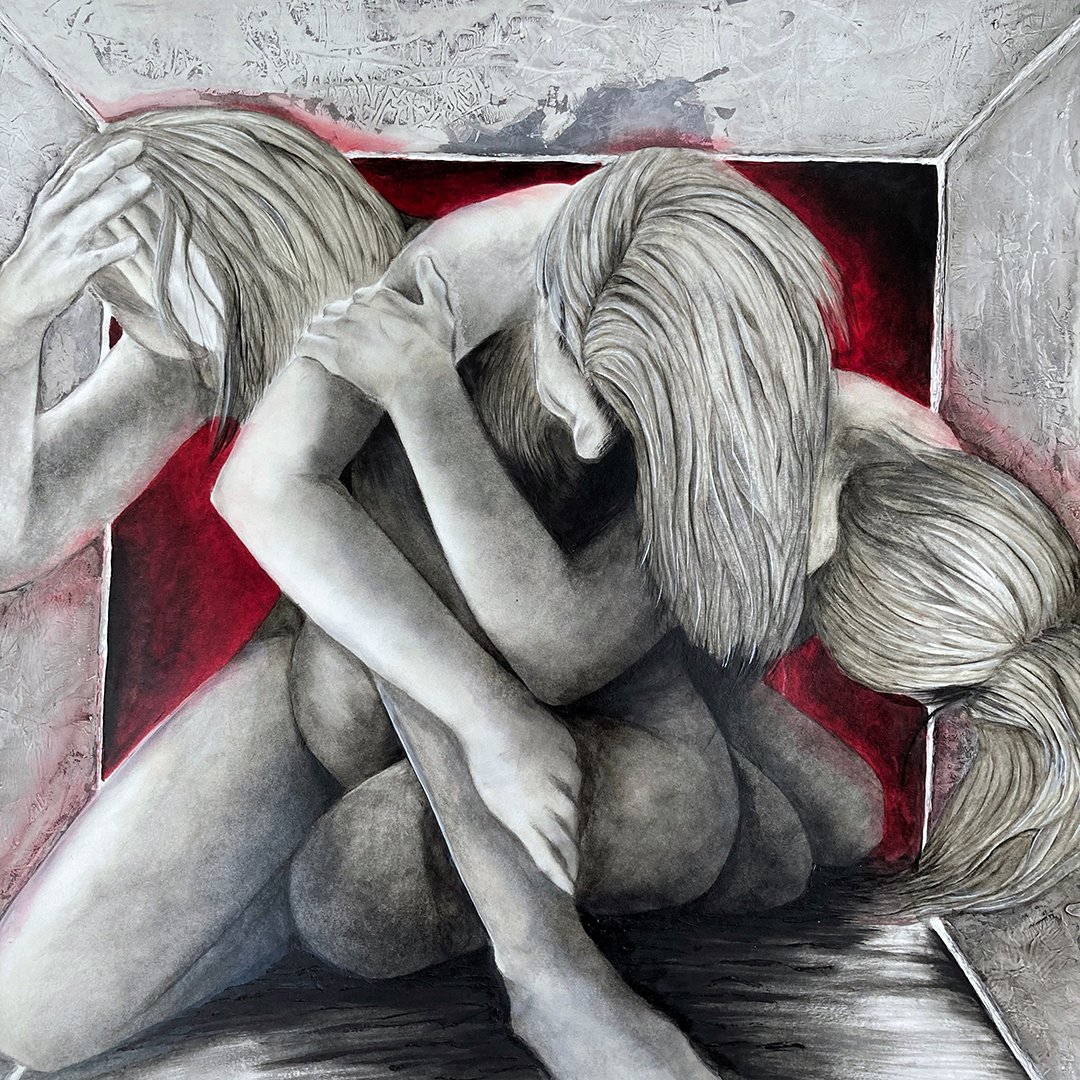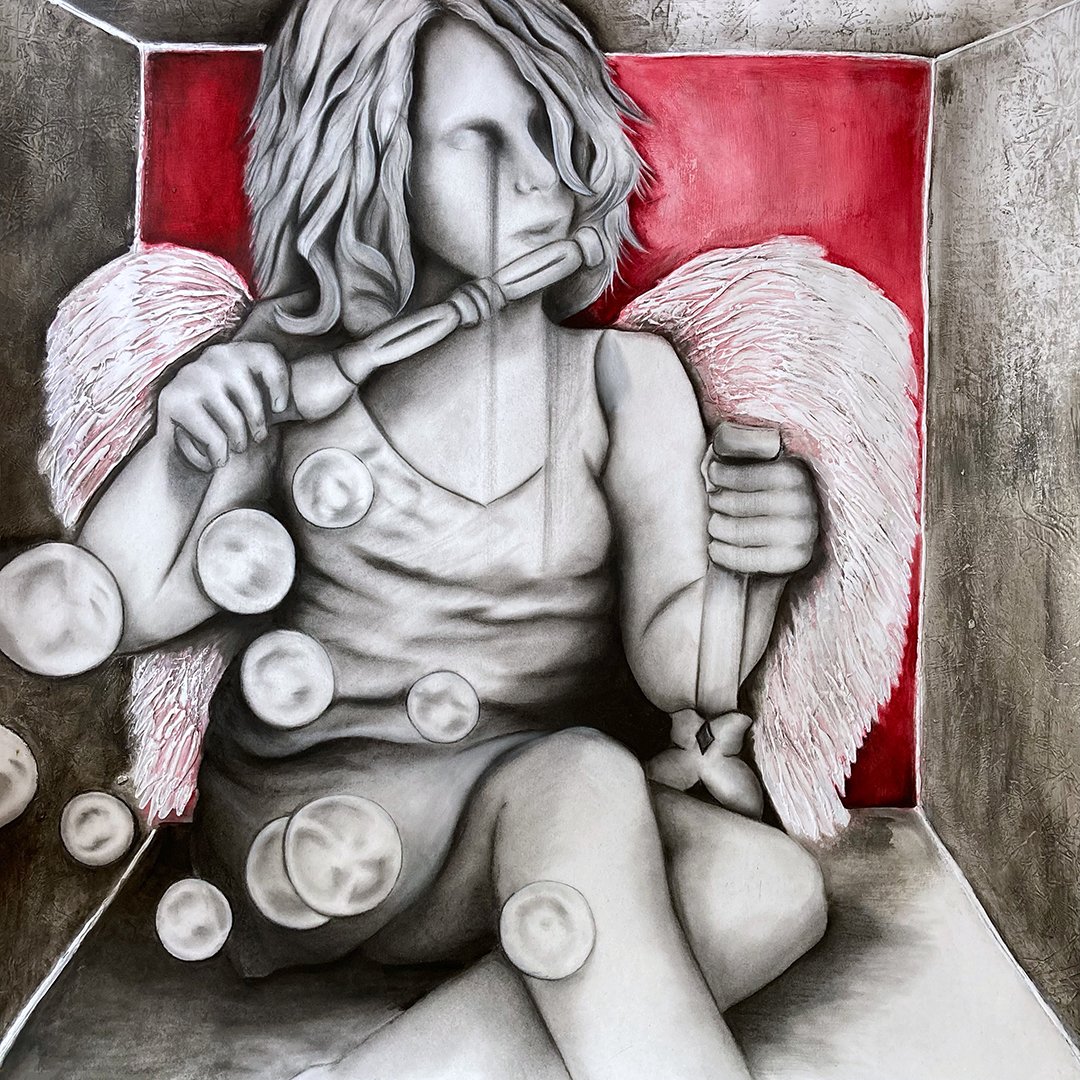Talia Graves
Reclaimation
It started in the grocery store, that profound and overwhelming feeling of pain as I looked around and realized I didn’t know what I liked to eat. Tears welled up as I stood in an aisle, people walking past me going about a simple chore of picking out the food they would be taking home, and I stood there frozen in place. It was my first time grocery shopping as a newly separated woman, mother, former wife. For years I’d struggled with my own identity as I tried to be mother and wife, caretaker and nurturer to everyone but myself. While this series is inspired by personal reflections surrounding my own experiences to find, reclaim, and empower myself, Reclamation is also aimed towards the experiences shared by others who have felt that their identities were unclear due to societal expectations. For a woman there has been a battle over her body since the time she was born. How she is to be visible for her acceptance in society, with her role and future as mother and caretaker superseding her own wants and desires. The country’s foundation in Christian ideology has had a generational effect on women’s roles with the belief that the ultimate achievement she should aspire to is marriage and motherhood. If she doesn’t want this, then something is wrong with her. If they have fallen apart, then she’s failed. The current reversal of Roe vs Wade reinforces the idea that she is incapable of making an informed decision about her own body and destiny. These works contain intentional references to the use of color, symbols and modified poses from Christian iconography of the virgin Mary. She is forever the virgin, forever locked in youth and inexperience; she is the symbol of the sacrificial woman, existing within ideals of purity, immortalized as the aspiration for all women through motherhood, subservient to all wants and desires but her own.





Contact me.
tchlumsk@msudenver.edu

